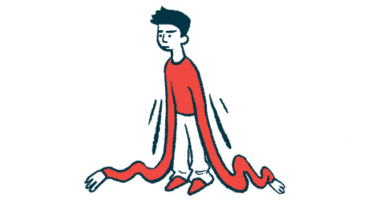UTIs can pose hidden complications for people with Huntington’s
It's important to distinguish between HD symptoms and other health issues

My wife, Jill, and I often find ourselves in airports with free time while visiting family across the country. To escape the chaos in waiting areas, we often watch TV shows on my iPad. Recently, we finished HBO’s “Succession,” a drama about a global media empire run by the ruthless and brilliant Logan Roy. He seemed invincible — until a simple urinary tract infection (UTI) appeared to make him lose his mind.
When the show revealed his diagnosis, I was skeptical. Could something so minor trigger such a drastic and quick shift in behavior? Turning to Jill, my personal Google, I asked if it were even possible.
“Yes,” she replied. She then shared a story about her late father, Ken. Like Jill, he was gene-positive for Huntington’s disease (HD). In the late stages of his disease, Ken suffered from several UTIs. The challenge was his inability to communicate his experiences, making it appear as if his HD symptoms had worsened overnight.
Jill explained that HD and UTIs may share some similar symptoms, such as confusion, agitation, or motor issues. It’s easy to mistake one condition for the other, but there’s a crucial difference: the speed of decline. A sudden behavioral change in a person with Huntington’s might signal that something as small as a UTI is causing big problems.
I asked Jill how doctors distinguished Ken’s UTIs from his everyday HD symptoms. She emphasized that a rapid decline in his behavior was often a red flag. As she spoke, I noticed her expression change. We both realized that what happened to her father might one day happen to her.
Staying vigilant
While this possibility isn’t an immediate concern for us, I now understand that, as her HD symptoms progress, we may face tricky health challenges, including UTIs. As Jill’s caregiver and husband, I know I’ll need to pay extra attention to her behavior, especially when something seems off. It’ll be important for me to remember that sudden changes might not always be disease progression; they could be something simpler and treatable.
This realization underscores the importance of noticing subtle shifts. It’s easy to attribute every change to Huntington’s, but sometimes, as with Jill’s father, there’s another underlying issue. Being vigilant isn’t just about watching for symptoms; it’s about learning to decipher the quieter signals that carry important messages.
“Succession” may have drawn our attention to riveting themes of power and family legacies, but it also served as a poignant reminder that HD isn’t always to blame. In our journey with this disease, staying alert to hidden complications could make all the difference in Jill’s quality of life and our ability to face each challenge together.
Note: Huntington’s Disease News is strictly a news and information website about the disease. It does not provide medical advice, diagnosis, or treatment. This content is not intended to be a substitute for professional medical advice, diagnosis, or treatment. Always seek the advice of your physician or other qualified health provider with any questions you may have regarding a medical condition. Never disregard professional medical advice or delay in seeking it because of something you have read on this website. The opinions expressed in this column are not those of Huntington’s Disease News or its parent company, Bionews, and are intended to spark discussion about issues pertaining to Huntington’s disease.







graciela
me paso tal cual con mi hija, gritaba me duele, me duele todo todo todo, y no decia que led dolia, creiamos que habia empeorado su cognitividad, y era una infeccion urinaria